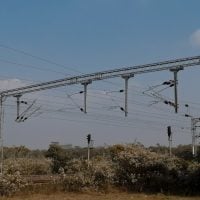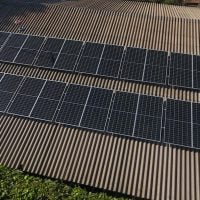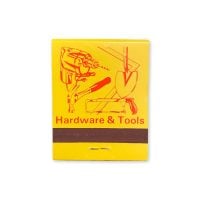Deadline: 21-Sep-22
The United Nations High Commissioner for Refugees – UNHCR in Colombia invites non-governmental and non-profit organizations to express their interest in becoming strategic partners of UNHCR around twelve (12) work sectors prioritized in the Multi-Year Strategy 2023 -2026.
Goals
The objective of this call for expressions of interest is to request the application of non-governmental and non-profit organizations for the formation of the group of partners that will implement the UNHCR Multi-Year Strategy 2023-2026. The objectives and activities indicated have a national scope, with emphasis on the departments and subregions in which the UNHCR currently has a presence or those in which the need to expand the intervention is identified, considering the context of protection of the population to which it is they serve Proposals that only include a municipality in their intervention will not be considered.
- UNHCR currently has a presence in the following areas:
- Riohacha Sub-Office in the departments of La Guajira, Cesar, Magdalena, Atlántico and Bolívar;
- Medellín Sub-Office in the departments of Córdoba, Chocó, Antioquia, Risaralda, Armenia, Quindío; Sub-Office of Cali, in the departments of Valle del Cauca, Cauca, Nariño, Putumayo;
- Sub-Office of Cúcuta in the departments of Arauca, Norte de Santander and Santander;
- Bogotá Field Office in the departments of Cundinamarca, Boyacá, Meta Guaviare, Casanare and Vichada and in the city of Bogotá.
They clarify that this call is NOT for the financing of projects, and, therefore, participating in this process does not imply commitment or acceptance by UNHCR to finance projects. Accepted partners may receive proposals to implement Agreements depending on the availability of UNHCR funds for the years 2023-2026, which will be discussed and defined in later stages.
Sectors
- This invitation for expression of interest is focused on response actions for the people that UNHCR serves (refugee population, internally displaced persons, returnees, host community). The details of the sectors are as follows:
- Information and case orientation: The people they serve have access to accurate and timely information that allows them to assert their rights. Mechanisms and support spaces for access and dissemination of information, case guidance, activation of assistance routes such as Attention and Orientation Points (PAO) and other face-toface mechanisms, as well as remote
- Case management: The people they serve have access to case management services aligned to international standards. These services guarantee the specialized intervention of a series of multisectoral providers that cover the immediate needs of prioritized cases and support their long-term recovery, including referral to institutional protection routes, in interaction and complementarity with the State offer.
- Legal assistance and strategic litigation: The people they serve have access to quality legal assistance in a free, massive and specialized manner through the accompaniment and advice that guarantees access to rights. UNHCR’s partners manage to influence legislation and public policy through the litigation of strategic cases.
- Institutional Strengthening: Strengthen the technical capacity of national and local public institutions, technical support for public policies on issues such as children, ethnic communities, forced displacement, gender violence and international law.
- Institutional Strengthening of Ombudsmen: Strengthen the technical capacity of Municipal Ombudsmen and/or networks of Ombudsmen in their role of legal incidence and defense of the rights of the people they serve.
- Prevention, risk mitigation and response to Gender-Based Violence (GBV): Provide effective protection, access to justice and specialized care programs in the prevention and management of cases of gender-based violence to reduce the risks of the people they serve
- Child Protection and Recruitment Prevention: Protect the children and young people they serve from all forms of violence, exploitation, abuse and discrimination through access to the child protection system, prevention and protection policies, accessible and multisectoral services
- Community Empowerment and Civil Society Organizations: Strengthen and empower community actors, host communities, ethnic communities through management and protection mechanisms that increase integration, peaceful coexistence, leadership and resilience in communities. Strengthen and empower civil society organizations, opening space for their participation and direct interaction with institutions.
- Legalization of settlements: Support the legalization of informal settlements with a high concentration of displaced, refugee, returnee, host population, including ethnic communities.
- Health insurance: Inform, guide and provide support to the people they serve for access to the health system.
- Employability and Entrepreneurship: Contribute to the access of the people they serve to employment and self-employment routes through initiatives with networks, cooperatives, associations, the private sector and institutions and technical training for the creation and strengthening of units individual and collective productivity of the people they serve.
- Return and Relocation: Support the institutions already the communities in the accompaniment/implementation of the Return and Relocation Plans, as a lasting solution.
Basic Considerations for this Call
- The invitation to become a member of UNHCR is open to all current and new members. Applicant organizations can apply to different sectors according to their capacity and expertise. If your organization wishes to apply for multiple sectors, you must submit a concept note for each sector. Ensure that the Concept Note is in line with the technical and experience requirements detailed. Supports must be attached that account for your specific and desired experience as a minimum. If you do not meet all the required criteria in a specific experience, your proposal will not be considered
- Please note that the concept note is not a complete description of a project and is done to help UNHCR understand and select the most suitable partner for a specific sector. In case of being selected through this call, the organization could be contacted by UNHCR in later stages to discuss the design of a project in 2023. This will depend on the availability of UNHCR funds and depending on the objectives and added values of the project. portfolio offered by the selected organizations.
- Proposals submitted by local organizations and/or international organizations that demonstrate a transfer of knowledge, advocacy work, capacity building and/or operational capacity to local NGOs will be positively valued
- Compliance with the specific and desired experience of the organization will be verified through the presentation of contract certifications with a scope similar to that of the Call, which evidences the object and the activities carried out. As the case may be, a copy of the contract and/or settlement certificate may be presented.
- Organizations can state in the concept note (section VI Subcontracting) if in their proposal they will work together with other partner(s) in the fulfillment of the activities. One of the parties must be designated to act as main partner duly invested with authority to act on behalf of all the partners.
- Selected organizations should use UNHCR’s Identity Registration and Management (PRIMES) ecosystem, where required. This will be a condition for being elected a UNHCR partner.
- Note that all planned interventions should have an Age, Gender and Diversity approach (AGD for its acronym in English) and have mechanisms that facilitate feedback to communities.
- For UNHCR, combating sexual exploitation and abuse, as well as sexual harassment against the people they serve, is a priority.Along with the Concept Note, interested organizations must carry out a selfassessment on Protection from Abuse and Exploitation of Sexual Exploitation (PSEA) through the “PSEA Partner Self-Assessment Form”. The form filled out by each partner must also be uploaded to the Partner Portal.
- Organizations that have already completed their registration on the partner portal platform must ensure that their profiles are fully complete and up-to-date, and that the relevant documentation has been uploaded.
For more information, visit https://procurement-notices.undp.org/view_notice.cfm?notice_id=95157









































